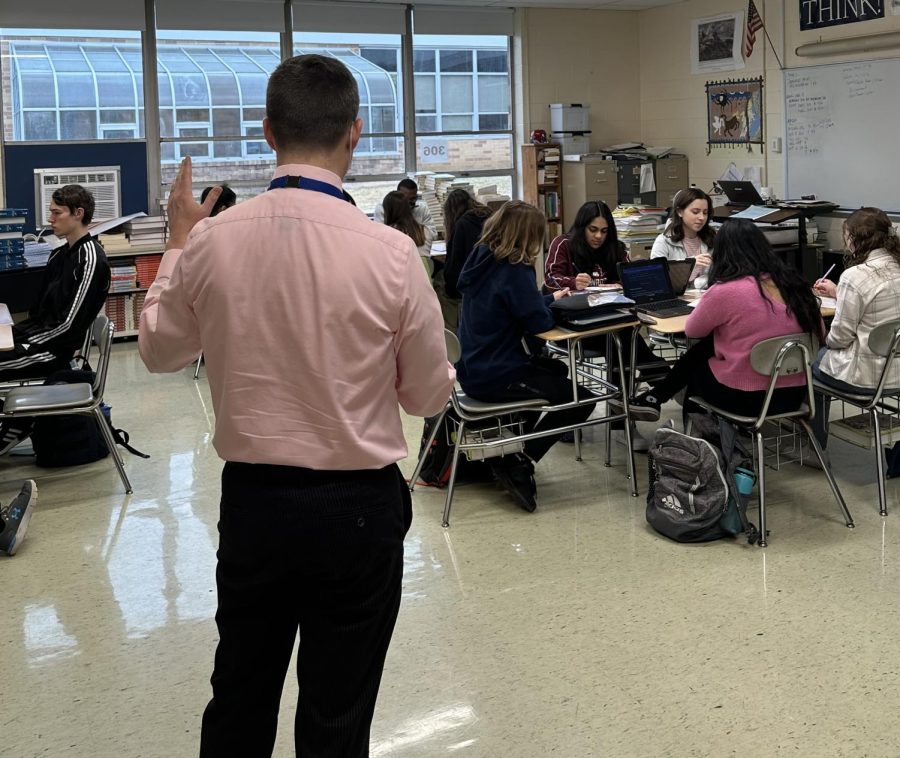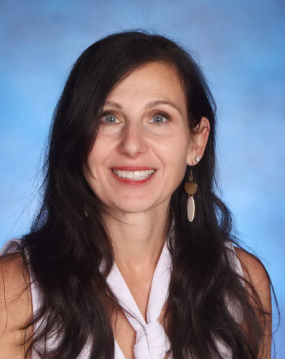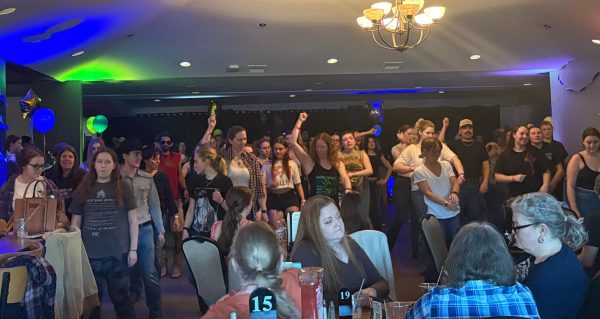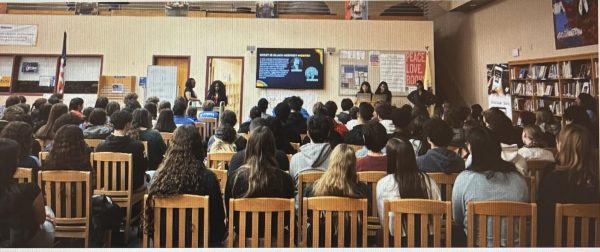How To Get a Five on Your AP Exam
AP U.S. History Teacher Jesse O’Neill spends time with his students reviewing for the exam months in advance, making sure they understand everything they’ve learned over the last two years of U.S. History. Knowing the material is the biggest part of any exam, but especially a History exam, where new developments build on the past. (Photo by Sophie Picone)
April showers bring May flowers, and what do Mayflowers bring? AP Exams.
Advanced Placement exam season is upon us, and many Warren Hills students will spend the month of April reviewing and stressing. Many students, however, will struggle with finding adequate ways to study for exams.
These exams require expert advice— and who better to talk to than the experts themselves? Four students who received fives on 2022 AP exams of different subjects weighed in.
First up is everyone’s favorite brain-twister: Physics.
According to Max Van Orman, a 2022 alum who scored a five on Physics 2, the best way to prepare for the Physics exam is to not think about it during the year.
“Spend your time in class worrying about class rather than the exam,” he said, “because by working towards understanding class time, you’re really just studying for the exam.”
Van Orman also said that the best way to study for the Physics (or any) exam is to do practice problems, because they help you learn the material and get used to the exam format.
For the exam itself, he said to “stay calm, and answer free response questions as much as you can— partial credit is better than none.”
Van Orman’s final advice was something that all AP Physics students should know well by now— “always write the scaffold!”
For the AP U.S. History exam senior Sofia Schiano recommends similar study strategies, but also advises self-care.
Schiano said she began studying for the exam about two months prior, giving herself enough time to review everything. She watched the AP review videos, made timelines, and did lots of practice tests and practice essays.
But, Schiano said, the best advice going into the exam is to make yourself comfortable— bring a jacket, a snack, some water, and “breathe. Just breathe. It’s not that big a deal.”
Next up was junior Raina Teter, with the data on the AP Statistics exam, who said her strategy during the year was to put her best foot forward on every assignment and test.
“Don’t be afraid to ask your teacher questions,” she advised. “You must advocate for your own understanding.”
As the exam got closer, Teter said she reviewed each unit one by one, making sure she understood the content presented during the year, but she doesn’t recommend cramming.
“SLEEP the night before, replace cram time with self care, don’t stress,” she said. “You cannot do well on an exam if you are not well in mind.”
And what does Teter advise if you don’t understand a question?
“It’s okay,” she said. “Just move on.”
Lastly, for the bookworms among us, senior Hanora Finnegan gave sage advice about the AP Language and Composition exam.
“Know how to write a good thesis and structure a good outline,” she said. “Turn to Khan Academy and other free resources, they will be more than enough to prepare you. Start essays with a personal story, and don’t worry if you don’t finish all of them, just do what you can.”
Finnegan said she also followed the advice given by English teacher Penny Giamoni.
“‘Draw a picture with your first paragraph, and your last sentence should be the title of that picture,’” she quoted.
Finnegan’s final advice for the exam related to timing.
“Section it off, make sure you leave enough time for everything,” she said.
And like Teter, Finnegan advised “don’t be afraid to just move on.”





